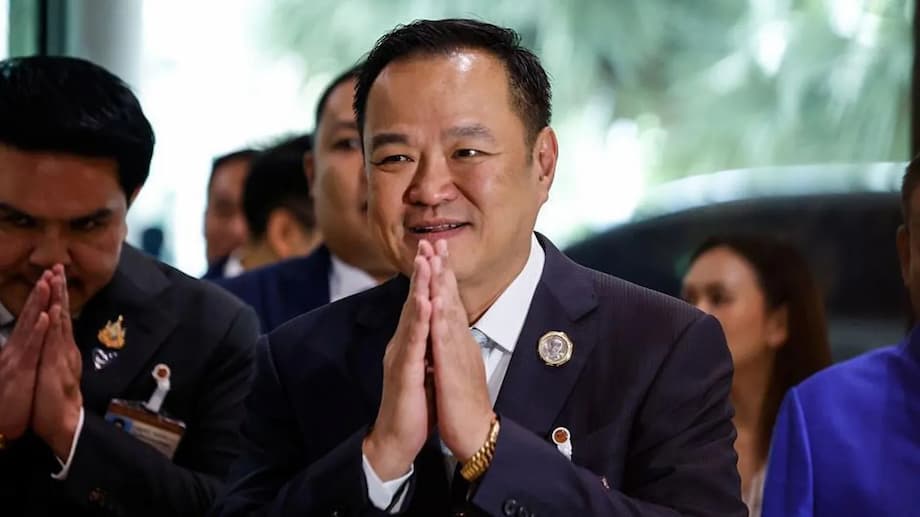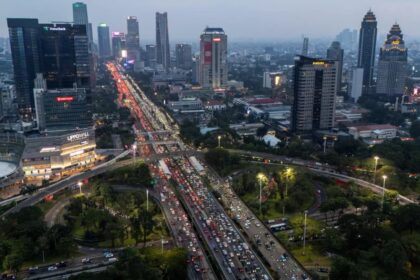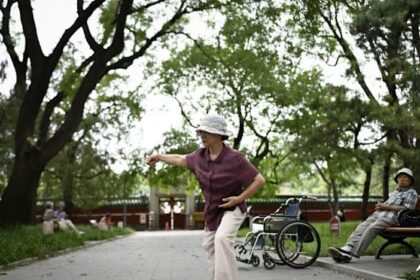A decisive vote after months of turmoil
Thailand’s parliament has chosen Anutin Charnvirakul to lead a new government, capping a turbulent stretch that saw two prime ministers removed in quick succession and weeks of political uncertainty. Anutin, 58, secured a clear majority in the parliamentary vote, gathering support well beyond his party’s modest seat count. He is Thailand’s third prime minister in two years, a reflection of a system where court rulings and shifting alliances often determine who governs. He will head a minority administration with a pledge to call an election within four months and to start a process to rewrite the constitution. The main opposition force, the People’s Party, backed his bid on those conditions and will remain outside the government.
- A decisive vote after months of turmoil
- Why the Shinawatra machine faltered
- How Anutin assembled support
- Who is Anutin Charnvirakul
- Early signals from cabinet picks and the economy
- Managing a fragile cease fire with Cambodia
- Cannabis policy at a crossroads
- A constitution rewrite and the rules of the game
- Election clock and possible outcomes
- The Essentials
Anutin’s appointment followed a royal endorsement, the formal step required by the constitution for a premier to take office. The ceremony underscored the importance of the monarchy in Thai political life. This time the Senate did not participate in selecting the prime minister, a change from the post-coup system in place after 2014. Anutin now faces a short runway to show competence on the economy and to calm tensions along the border with Cambodia, even as a fresh national vote looms.
Why the Shinawatra machine faltered
The rise of Anutin is inseparable from the fall of the most dominant political family of the past two decades. Paetongtarn Shinawatra, daughter of former leader Thaksin Shinawatra, was removed by the Constitutional Court for an ethics breach tied to a leaked phone call with Cambodia’s longtime power broker Hun Sen. The conversation, which preceded a five day border flare up in July, damaged her credibility and ruptured trust inside her coalition. Anutin’s Bhumjaithai Party withdrew its support soon after, collapsing the government.
Paetongtarn was the latest Shinawatra-backed leader to be cut down by the judiciary, a recurring feature of Thai politics since the 2006 coup that removed Thaksin himself. Her immediate predecessor from Pheu Thai, Srettha Thavisin, had also been removed by the court. With Paetongtarn out and Pheu Thai’s remaining nominee in poor health and lacking public profile, the party was left exposed. Thaksin then departed for Dubai for medical treatment, saying he would return for a court hearing. The once dominant Pheu Thai has been relegated to the sidelines, while its reformist rivals remain blocked from forming a government.
How Anutin assembled support
Despite holding just 69 of the 500 seats, Bhumjaithai has cultivated a reputation as a pragmatic broker. The party previously joined conservative groupings and later aligned with Pheu Thai, shifting as needed to remain near the center of power. After the leaked call between Paetongtarn and Hun Sen, relations inside the coalition frayed. Bhumjaithai walked away, and with Pheu Thai weakened, Anutin positioned himself as a middle way candidate who could gather votes from across the aisle without igniting an immediate confrontation with the establishment.
A bargain with the People’s Party
The People’s Party, successor to the dissolved reformist party that won the most seats in 2023, offered outside support to Anutin on firm conditions. He agreed to call an election within four months, to launch steps toward a referendum on constitutional change, and to present a joint policy statement before dissolving the House. The People’s Party remains out of the cabinet and has signaled that its backing is limited to keeping the government functioning until the vote. This arrangement leaves Anutin leading a minority administration that relies on goodwill from a strong opposition, a delicate task in any parliamentary system.
Who is Anutin Charnvirakul
Anutin was born into a wealthy political and business family. Before entering politics in the 1990s he led Sino Thai, a major construction firm connected to large infrastructure projects. He took over Bhumjaithai in 2014, expanding it into a nationwide force by appealing to voters outside Bangkok and cutting deals with factions across the spectrum. He served as health minister during the pandemic, a period that raised his profile and drew scrutiny over vaccine procurement. In 2022 he delivered on a signature pledge to decriminalize cannabis, a first in Asia that fueled a wave of retail shops and debate over regulation.
He projects an easygoing image on social media, but political insiders see a skilled operator who reads the shifting map of Thai politics. A trained pilot with a taste for hands-on outreach, he is comfortable in markets and community events, then at the table where deals are made. After his election, he tried to set expectations for a short, intense tenure.
Speaking to reporters outside parliament, Anutin said he would push hard in the few months he has been granted.
“I will work my hardest, every day, no holidays, because there is not a lot of time.”
That urgency will define his first weeks in office as he attempts to show results without alienating crucial partners he will need in a coming campaign.
Early signals from cabinet picks and the economy
The first slate of cabinet choices points to an effort to revive growth and stabilize policy. Anutin tapped veteran technocrat Ekniti Nitithanprapas to run the finance ministry and selected experienced hands for energy and foreign affairs. Thailand’s economy has been slow compared to regional peers, with weak consumption and high household debt weighing on confidence. Government stimulus efforts in recent years struggled to gain traction.
Analysts expect a focus on short term measures, possibly repackaging unspent programs, to boost spending ahead of the election window. Monetary policy could also do more of the heavy lifting. Market economists anticipate the Bank of Thailand will ease further at its next meeting under a new governor, with some expecting a larger cut to support demand. The aim would be to create a firmer base for tourism, autos, and small business, sectors that together drive jobs and household income.
Lavanya Venkateswaran, Senior ASEAN Economist at OCBC, said the new government may not have the time or parliamentary strength to pass major reforms before the next vote.
“It remains to be seen what the PM can do in such a short period of time. His role will likely be more geared towards setting the stage for the next election.”
A success metric for Anutin will be confidence, both among voters and investors. Clear communication and coordination with the central bank could help, even if the structural issues of debt and competitiveness will take longer than four months to address.
Managing a fragile cease fire with Cambodia
The most immediate test outside the economy lies on the eastern frontier. A five day spasm of fighting along the Thai Cambodian border in July left at least 43 people dead and displaced tens of thousands before a cease fire took hold. The episode followed the leaked conversation between Paetongtarn and Hun Sen and became a central part of the case against her in court. Repairing ties now falls to Anutin and his new foreign minister, Sihasak Phuangketkeow, a seasoned diplomat. Cambodia’s prime minister Hun Manet has publicly congratulated Anutin, a small but helpful signal after weeks of tension.
In public remarks after taking office, Anutin framed his approach to the border through a security first, diplomacy first lens, trying to cool nationalist pressure at home while preventing a repeat of the violence.
“This government will take peaceful measures to resolve the ongoing Thai Cambodian dispute with a firm commitment to mitigating any further Thai casualties.”
Deescalation will require cooperation by militaries on both sides and close communication to manage the return of displaced families. A calmer border would ease political pressure in Bangkok and help sustain the early momentum of the new administration.
Cannabis policy at a crossroads
As health minister, Anutin pushed through decriminalization of cannabis in 2022. The change removed the drug from the narcotics list and opened space for medical use, but it also produced a rapid expansion of retail shops. The initial legal framework left gaps that local authorities struggled to police. The previous government toyed with tighter rules and even discussed bringing cannabis back under criminal law, a move that sparked backlash from small businesses.
Anutin now has a chance to reshape the debate. He has said his aim is a regulated industry focused on medical treatments and research, not a free for all. That would mean clear licensing, quality control, and restrictions on youth access. Investors in the sector crave clarity, while communities want a say in where shops can operate. With an election on the horizon, any new rules will need broad buy in to endure beyond a single government.
A constitution rewrite and the rules of the game
The People’s Party conditioned its support on steps toward a more democratic charter. Anutin pledged to organize a referendum that could lead to a new constitution drafted by an elected assembly, replacing the current document written by a committee after the 2014 coup. Advocates say a new charter would curb the influence of unelected bodies and reduce the likelihood of court interventions that have toppled governments repeatedly since 2006.
For the progressive camp, another priority remains the handling of the monarchy’s protection law, known as lese majeste. The People’s Party grew out of a movement that called for softening penalties and narrowing the scope of prosecutions. Some of its lawmakers have been convicted under the statute. Anutin is a strong royalist, and his party has consistently defended the existing law. That divide is why the People’s Party opted to support him from the opposition benches rather than join his cabinet. The two sides can still cooperate on electoral timing and constitutional procedures, even if they differ on sensitive issues.
Election clock and possible outcomes
Under the deal that brought him to power, Anutin is expected to present a policy statement to parliament, then dissolve the House within four months and call an election. A vote would likely follow within two months of dissolution. The timeline gives him scant time to pass legislation, which is why his early focus has been on personnel and executive actions that do not require long negotiation. Any achievements he can point to, such as progress on border stability or targeted economic relief, could help his party expand beyond its strongholds.
For Pheu Thai, rebuilding will be hard without an obvious standard bearer. The People’s Party enters the coming race with the most seats but still faces headwinds created by past legal battles. If it wins the popular vote by a wide margin, pressure will mount to let it govern. If the result is fragmented, Bhumjaithai could again play the middle way, converting a short caretaker period into a longer stay. Voters will judge not just policies, but also which leaders can finally steady Thai politics after years of revolving door governments.
The Essentials
- Parliament elected Anutin Charnvirakul prime minister with a broad majority, making him Thailand’s third leader in two years.
- He will lead a minority government backed from the outside by the People’s Party on the condition that he calls an election within four months and starts a constitution rewrite process.
- Paetongtarn Shinawatra was removed by the Constitutional Court over an ethics case linked to a leaked call with Hun Sen and the border clash with Cambodia.
- Bhumjaithai left the Pheu Thai coalition after the leak, then rallied support across parties to put Anutin in office.
- Anutin named experienced figures to key posts, signaling a focus on growth and stability amid a soft economy and high household debt.
- A recent border cease fire with Cambodia followed five days of fighting that killed at least 43 people; Anutin pledged peaceful measures to prevent further casualties.
- Anutin is known for decriminalizing cannabis in 2022 and now seeks a tighter, medical first regulatory framework.
- The People’s Party will remain in opposition despite supporting Anutin, keeping pressure on constitutional change and election timing.
- The Senate no longer votes for prime minister, shifting the choice to the lower house, but courts continue to shape political outcomes.
- The next election could pit the People’s Party against Bhumjaithai, with Pheu Thai weakened after successive court removals.












